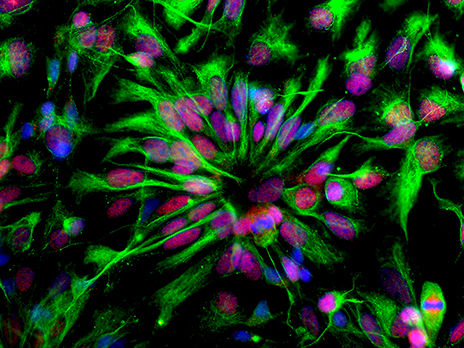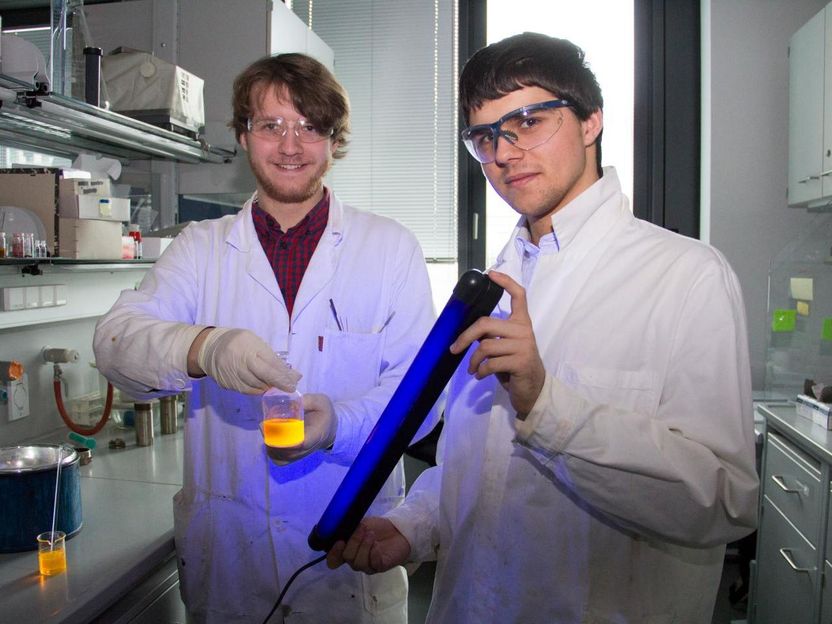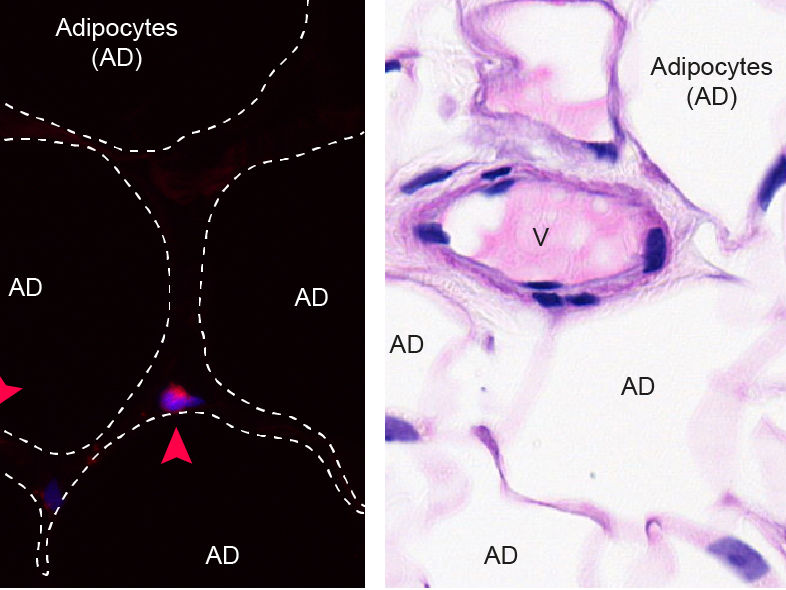New class of drug for patients with Tourette Syndrome
Emalex Biosciences Announces $250 Million Financing Round
Emalex Biosciences announced the closing of an upsized and oversubscribed $250 million Series D funding round that will fund a Phase 3 clinical trial and potential commercialization of a new class of drug for patients with Tourette Syndrome.

Symbolic image
Computer-generated image
Bain Capital Life Sciences led the funding round with participation from Paragon Biosciences, Valor Equity Partners, Fidelity Management & Research Company and several family offices.
Emalex's Phase 3 clinical trial for its investigational first-in-class new drug ecopipam, a novel dopamine-1 receptor antagonist, is expected to enroll more than 220 patients across approximately 90 sites, making it the largest trial ever conducted in North America for this serious central nervous system disorder.
Emalex Biosciences was created by Paragon Biosciences in 2018 to develop novel treatments for central nervous system (CNS) disorders.
"Emalex was founded specifically to tackle serious neurological conditions like Tourette Syndrome, recognizing that drug development for neurologic conditions is exceptionally difficult and few companies are willing to invest in bringing new options to these patients," said Jeff Aronin, Emalex founder and Paragon Biosciences CEO. "Our team has a strong track record of success developing neurology drugs and we are pleased to partner with our investors to advance ecopipam for patients."
The funding comes following positive Phase 2b clinical trial results (D1AMOND Study) that showed the investigational new drug ecopipam reduced motor and phonic tics as compared to placebo. The most frequent adverse events related to ecopipam in the study were headache, fatigue, somnolence, insomnia and restlessness. Patients in the trial did not have observable evidence of adverse movement or metabolic side effects commonly reported with antipsychotic agents.
Tourette Syndrome is associated with both increased mortality and significant morbidity. In the majority of individuals, Tourette substantially impacts day-to-day physical and social function.
"Tic disorders can have severe social and psychological consequences for patients, and there currently aren't many medications that effectively reduce tics without causing unhealthy side effects. Ecopipam has a novel mechanism that targets the D1 receptor, which is a new class of neurology drug," said Donald Gilbert, MD, a movement disorders specialist at the Cincinnati Children's Hospital. "It's important to note that a large number of patients with Tourette Syndrome have co-morbidities like ADHD or OCD. During the Phase 2b study they were allowed to continue their medications for those conditions, and their Tourette symptoms measurably improved with ecopipam."
Most read news
Other news from the department business & finance

Get the life science industry in your inbox
By submitting this form you agree that LUMITOS AG will send you the newsletter(s) selected above by email. Your data will not be passed on to third parties. Your data will be stored and processed in accordance with our data protection regulations. LUMITOS may contact you by email for the purpose of advertising or market and opinion surveys. You can revoke your consent at any time without giving reasons to LUMITOS AG, Ernst-Augustin-Str. 2, 12489 Berlin, Germany or by e-mail at revoke@lumitos.com with effect for the future. In addition, each email contains a link to unsubscribe from the corresponding newsletter.
Most read news
More news from our other portals
Something is happening in the life science industry ...
This is what true pioneering spirit looks like: Plenty of innovative start-ups are bringing fresh ideas, lifeblood and entrepreneurial spirit to change tomorrow's world for the better. Immerse yourself in the world of these young companies and take the opportunity to get in touch with the founders.
Last viewed contents
Scientists reveal non-addictive pathway to pain relief

DIC and Debut Biotech Advance and Scale Biomanufacturing of Sustainable Red Colorants for Food, Nutrition, and Cosmetics

Pantherna Therapeutics secures EUR 4.0 Mio. follow-on financing to advance its therapeutic mRNA development programs

Team discovers how Zika virus causes fetal brain damage
Anton Paar starts 2013 with 3 new subsidiaries

Fluorescence dyes from the pressure cooker





















































